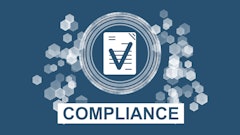
A survey conducted by Allianz finds Americans and Germans are less confident in the partnership and its future than they were two years ago.
In fact, declining optimism since 2022 may reflect a sense of disappointment rather than entrenched pessimism, as expectations in the partnership remain very high.
“The survey shows that Transatlantic trust has declined recently. But this is by no means a reason to panic. German-American relations have fluctuated widely since 1945, and this has mostly been in response to international crises. The political climate has become rougher on both sides of the Atlantic and two wars are threatening the peace and security of the Western world. Citizens have a right to question how their governments are handling multiple simultaneous crises at once. Even if political relations appear to be shaky, economic relations between the two countries remain strong. Germans and Americans need each other and that will remain the case in the future,” says Julia Friedlander, CEO of Atlantik-Brücke.
“Although the survey indicates that confidence in the bilateral partnership has eroded somewhat, I take solace in two things. First, more than 80% of those polled believe that Germany and the United States have common interests and shared challenges. This is grounded in history but recognizes the uncertain environment we face today. Second, nearly two-thirds of respondents believe that the bilateral relationship is crucial for global stability. Looking ahead, this is an indispensable partnership if we are going to contain Russia, work toward peaceful resolutions in Ukraine and the Middle East, and address issues like climate change and workforce preparedness,” says Dr. Steven E. Sokol, president and CEO of the American Council on Germany.
Key takeaways:
- Lower trust in the partnership is more evident in Germany, with people feeling skeptical (31%, +12 points increase since 2022) and worried (33%, +17 points increase since 2022) about the partnership.
- Overall, the optimism observed in 2022 has waned across all generations, with fewer now believing that the partnership’s best days are ahead. Younger generations in both countries, however, remain slightly more hopeful for the partnership’s future.
- Uncertainty is rising in both counties. A larger proportion of each country’s participants, particularly from the United States, responded that they “didn’t know” whether the best days of the partnership were ahead or behind us – 27% of Germans (+4 points vs. 2022) and 40% of Americans (+13 points vs. 2022).
- Compared to the optimism found in the 2022 study, this year’s survey reflects a somber mood, driven by mutual concerns about the rise of extremism and issues that threaten socio-economic stability. For Americans, the No. 1 event driving distrust in Germany is the rise of extremist political parties, while Germans cite incidents of gun violence and the attack on the U.S. Capitol as most concerning.
- Over half of German and American participants expect the relationship to do good for both countries and also globally. A majority of participants believe that a strong German-U.S. partnership is crucial for the world’s stability (60% of Americans and 58% of Germans) and describe the partnership as “strong” (56% of Americans and 54% of Germans). “Common values,” “shared interests and challenges,” and “common views of democracy” are reasons for trust in each other’s government.
- Asked whether the partnership addresses issues that are relevant to them personally, nearly one in two agreed (46% for both Germans and Americans).
- Business is the most trusted institution across both countries. With this trust comes responsibility and high expectations for businesses to partner with governments to bolster transatlantic bonds. A majority of German and American participants would like to see businesses invest in employee skill development (71%), be more transparent (66%) and prioritize diversity, equity, and inclusion (57%). Aligning on common business practices and regulation would strengthen bonds, as 46% of Germans and 36% of Americans find these differences weaken trust.
- In the face of rising uncertainty about the future, people want more transparency and collaboration on defense and economic security (68%), but realize that governments can’t achieve these objectives alone.


























